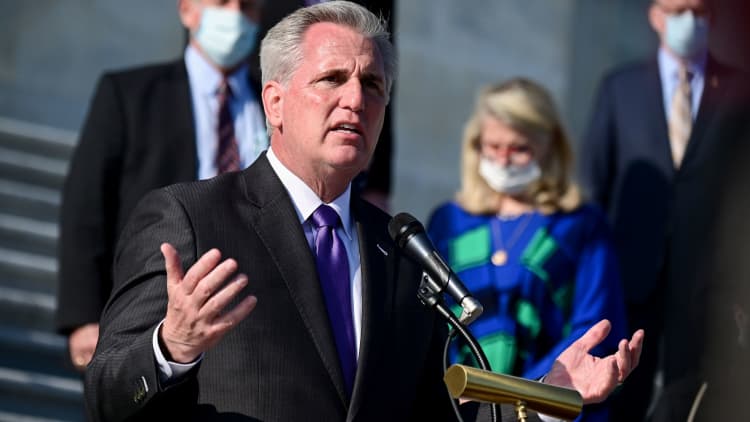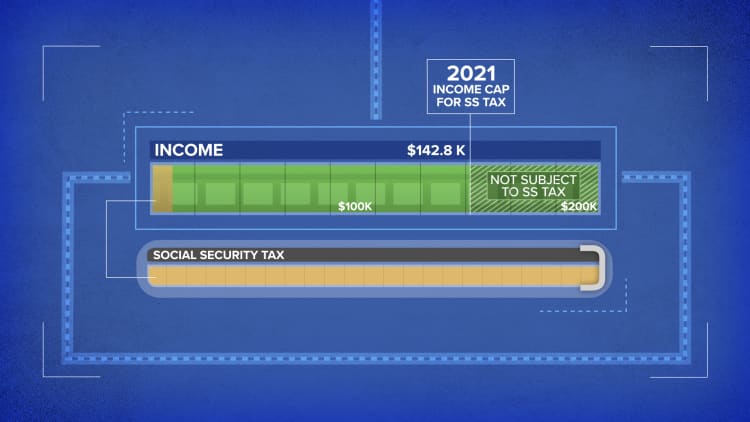A $25 billion federal rental assistance fund will soon be disbursed to states, allowing those struggling amid the Covid pandemic to apply for the money.
By one estimate, 14 million Americans are behind on their rent during the crisis. Advocates say more rental assistance will be needed to stave off an unprecedented wave of evictions. After 10 months of record job losses and business shutdowns, rental arrears in the U.S. may be closer to $70 billion.
President Joe Biden is calling on Congress to allocate another $30 billion in housing aid, and on his first day in office announced an executive order that will extend the national ban on evictions through March.
For now, here's what you need to know about accessing funds authorized by the $25 billion Emergency Rental Assistance Program.
Am I eligible?
To qualify for the assistance, at least one member of your household has to have lost income or incurred significant expenses due to the pandemic, or be eligible for unemployment benefits.
You will also need to demonstrate a risk of homelessness.
More from Personal Finance:
Covid is making it harder to get into a top college
Here's how delaying college may impact your future earnings
College can cost as much as $70,000 a year
In addition, your income level for 2020 can't exceed 80% of your area's median income, though states have been directed to prioritize applicants who fall at 50% or lower, as well as those who've been out of work for 90 days or more.
Expect to have to show in writing that you meet these requirements, such as with a past due rent or utility notice.
Are the funds available now?
States will have the funds by Jan. 26.
How do I apply?
"Where or how to apply will vary city by city," said Emily Benfer, a visiting law professor at Wake Forest University.
Many areas have existing rental assistance funds, and it will be through one of these that you apply for the new aid. In other cases, programs will be created to disburse the money, Benfer said.
"Renters should contact local housing groups, their representatives or the local 211/311 lines to identify programs and learn how to apply," she added.
Your landlord can also apply for you but must get your signature and provide you with a copy of the application.

How much could I get?
Renters can get help with up to 12 months of back rent and utility bills, and potentially another three months of support if there's still money available. In some cases, you can get funds to cover future rent payments, but only if there's a plan to address any debts first.
The funds are paid directly to your landlord or utility company.
Do I need to be behind on my rent to qualify?
No. But you can't get money for future rent payments until any rental arrears have been paid off.
Can I apply for money just for utility or energy costs?
Yes.
I'm a homeowner. Can I apply for this assistance?
No. You must be a renter.
I'm facing eviction. What should I do?
Apply for the funds as soon as possible.
Also, understand your rights. Most renters should be allowed to stay in their homes at least through March thanks to a national ban prohibiting evictions for nonpayment of rent.
To evoke that protection, you'll need to attest on a declaration form that you meet a few requirements, such as expecting to earn less than $99,000 in the 2020-2021 calendar year.
"If a tenant cannot pay the rent, they should provide the declaration to their property owner as soon as possible," Benfer said.
In addition to the national eviction ban, some states have issued their own moratoriums, some of which are more comprehensive than the federal law. Get informed about any policies that apply to you.
Last, if your landlord ignores any of these rules, as some are doing, get a lawyer. You can find low-cost or free legal help with an eviction in your state at Lawhelp.org.
One study in New Orleans found that more than 65% of tenants with no legal representation were evicted, compared with fewer than 15% of those who did have a lawyer in court.
Have you recently applied for rental assistance? If you're willing to discuss you experience for a story, please email me at annie.nova@nbcuni.com



